We are a modern dental practice situated in Kota Damansara, Malaysia offering varieties of dental treatments
Our patients tell us that their decision to visit us is one the best decisions they’ve ever made. We back this up with more than 13 years of dental success. Our doctors and dentists are certified to provide invisible braces, Invisible aligners.
Drop by today. You will be utterly pleased with our warm welcome and the amount of treatments we have to offer.
Treatments
Check Treatments available at Gigital Dental Clinic
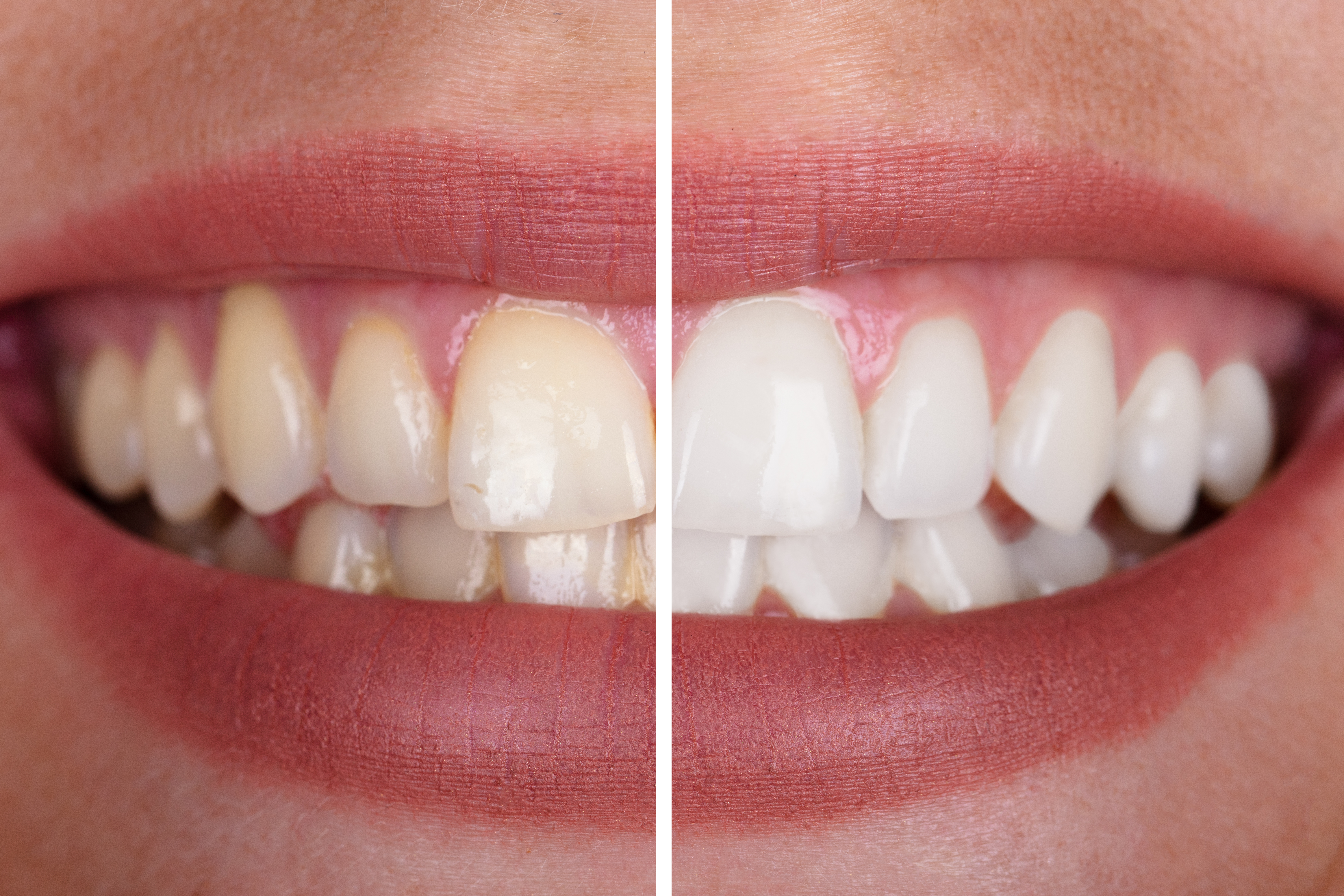
COMPLETE WHITENING TEETH
Tooth whitening lightens teeth and helps to remove stains and discoloration. Whitening is among the most popular cosmetic dental procedures because it can greatly improve how your teeth look. Most dentists perform tooth whitening.
Whitening is not a one-time procedure. It will need to be repeated from time to time if you want to maintain the brighter colour.
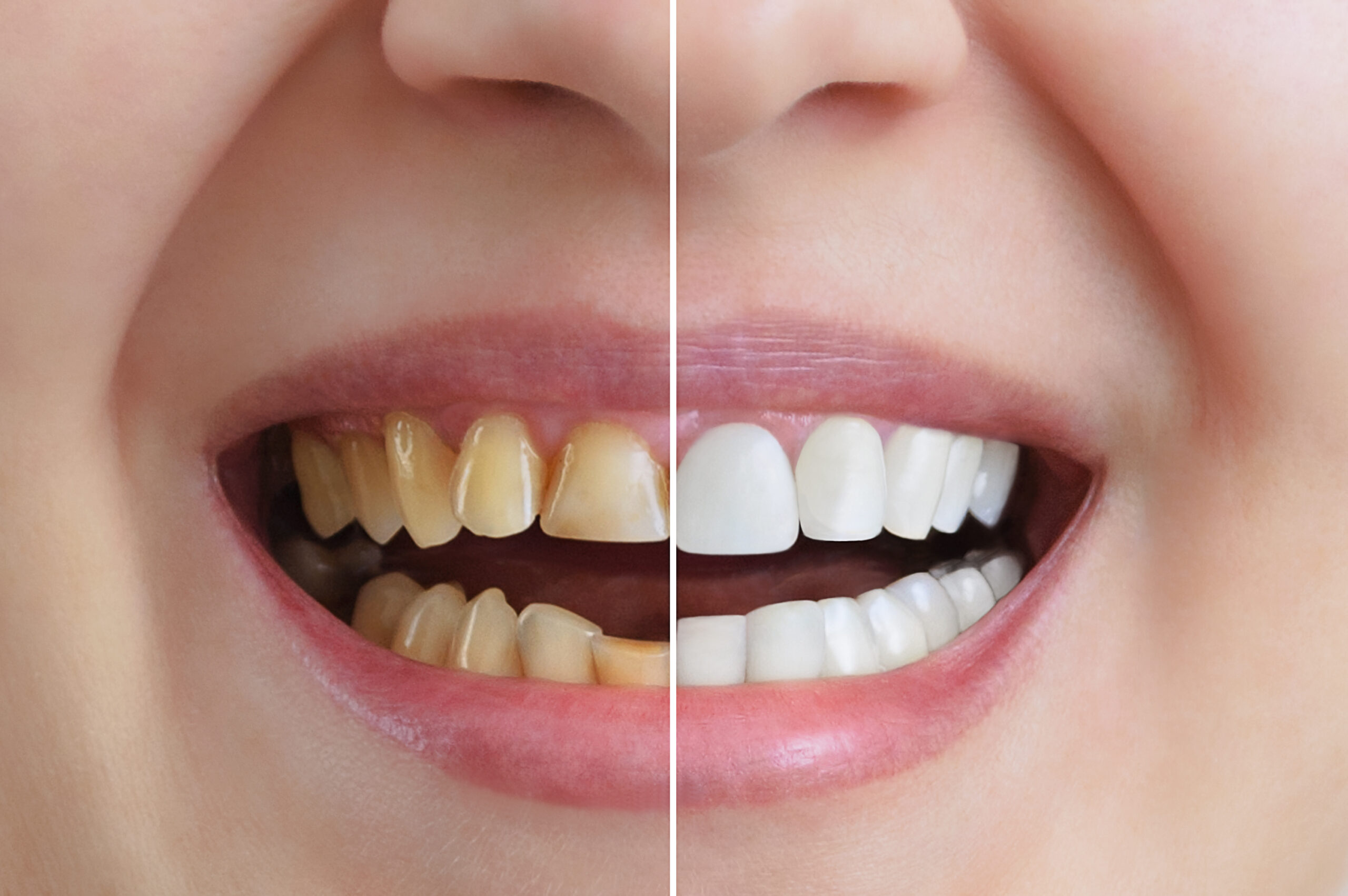
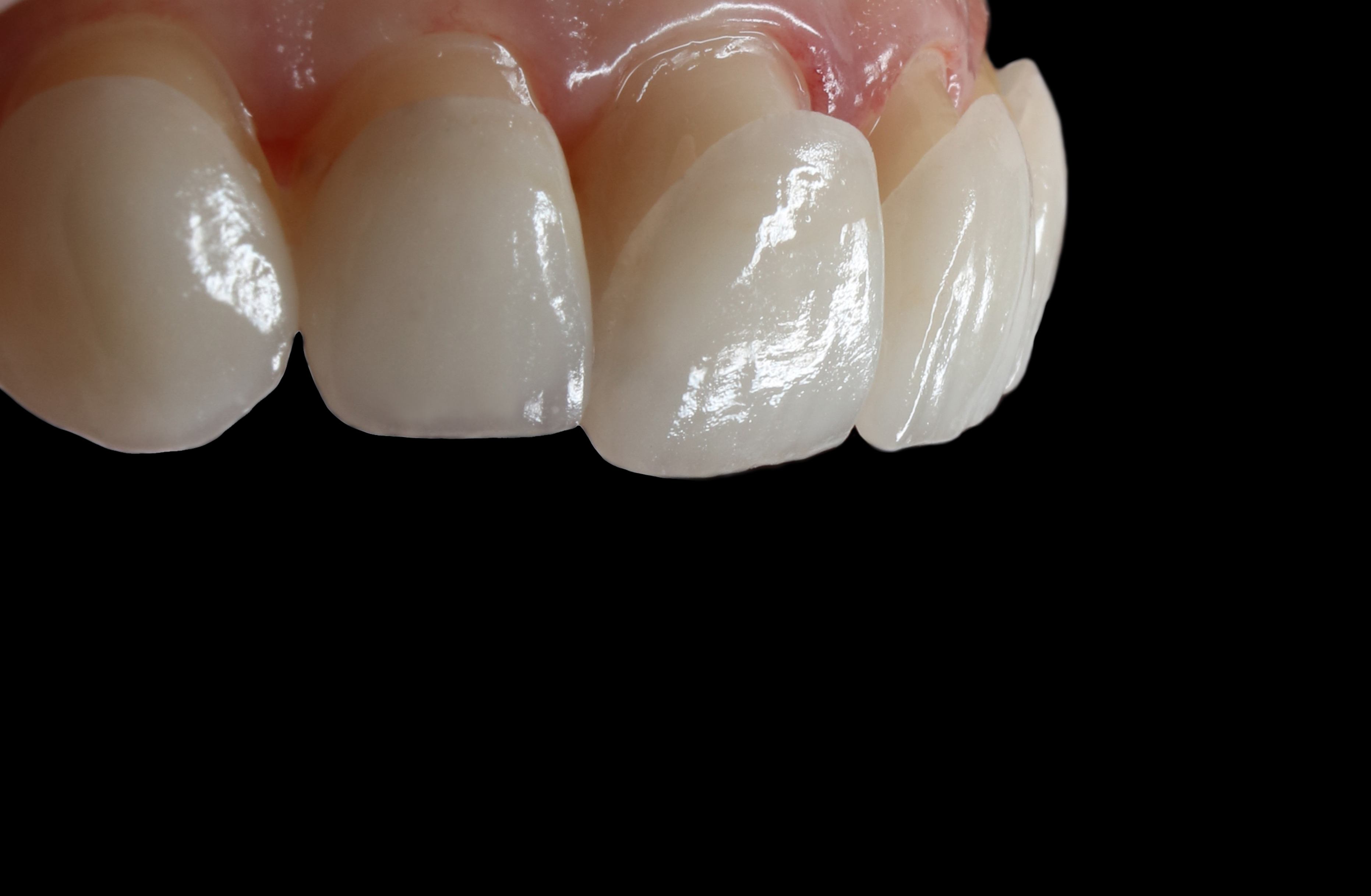
Veneer
Dental veneers are a possible solution to help you achieve the look you desire. They are a popular choice for those with chipped teeth, a gap between teeth, or misshaped teeth. Cosmetic dentistry is the branch of science which works on enhancing the appearance of the teeth. It improves aesthetics of one’s teeth by using various techniques such as teeth whitening, dental veneers, invisalign, tmj treatment. Moreover cosmetic dentistry helps to keep good oral hygiene and healthy teeth.
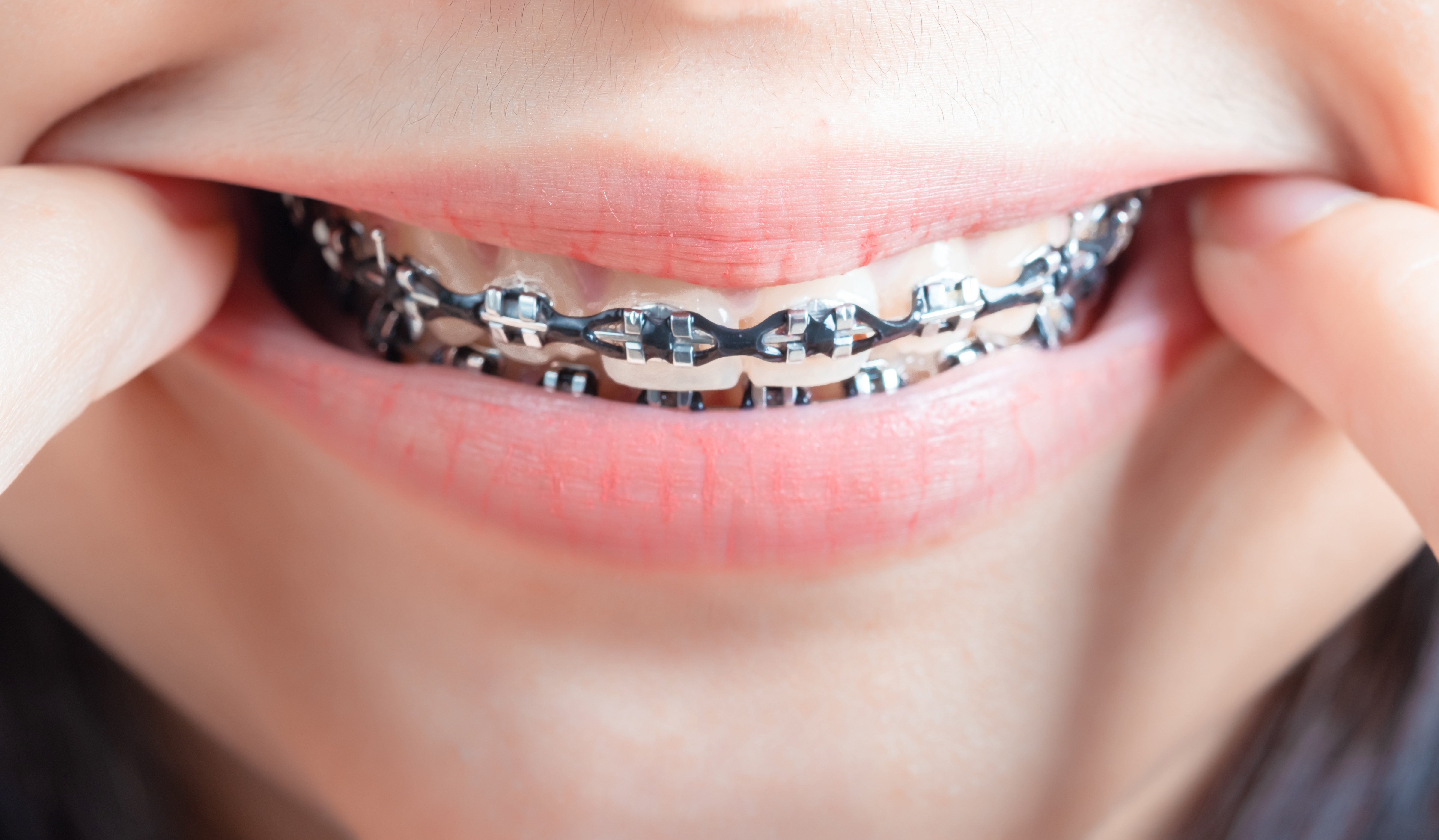
ORTHODONTICS
Orthodontic treatment is a way of straightening or moving teeth, to improve the appearance of the teeth and how they work. It can also help to look after the long-term health of your teeth, gums and jaw joints, by spreading the biting pressure over all your teeth.
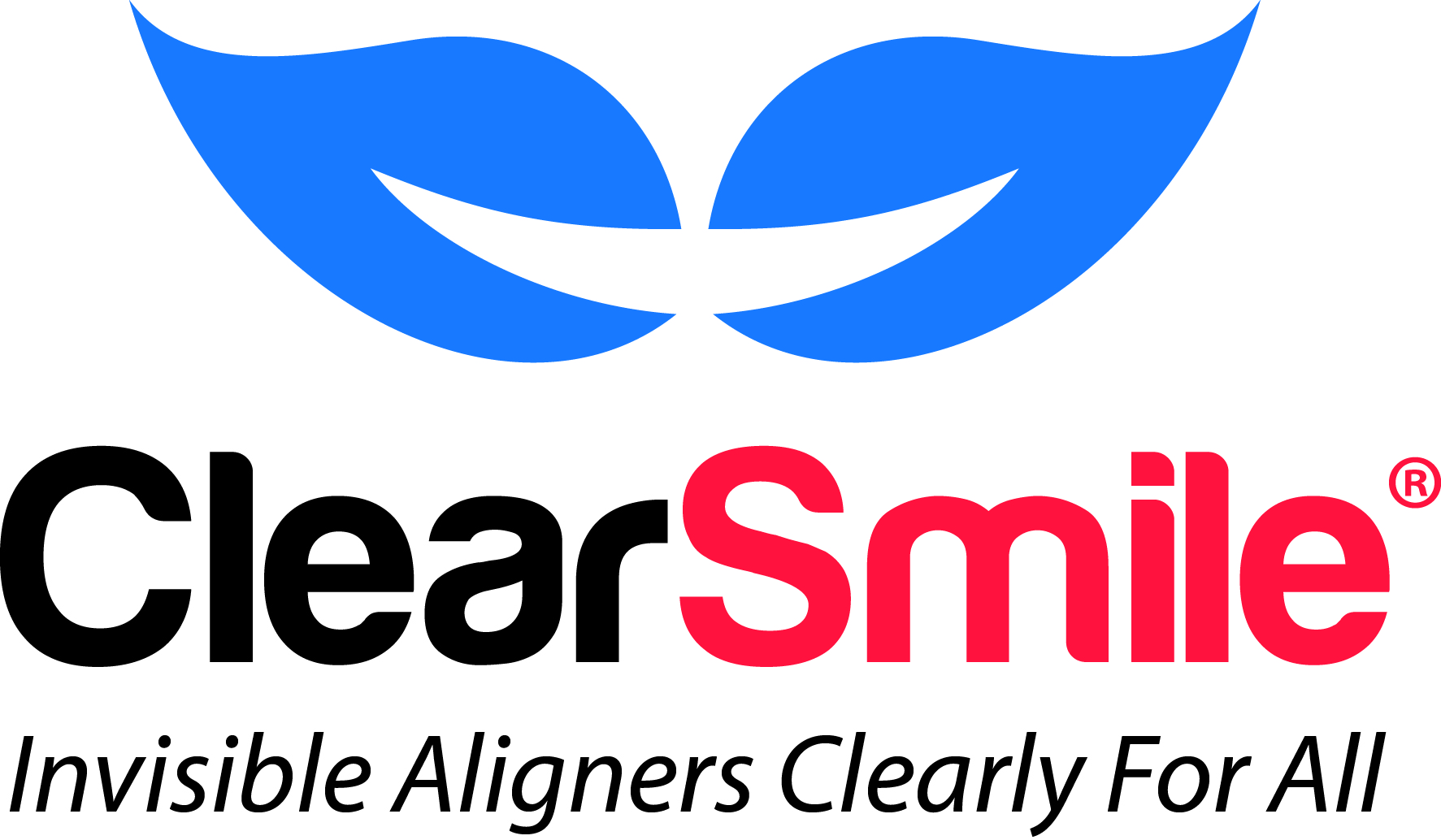
Clearsmile invisible aligners
Faster than conventional braces and some other invisible aligners. 3-12 months subjected to the complexity of your case.
Thicknesses of aligners (soft, medium,hard) starting from the soft, will trigger minimal pressure resulting in a more comfortable experience.
Invisible progress, visible result. ClearSmile aligners are invisible.
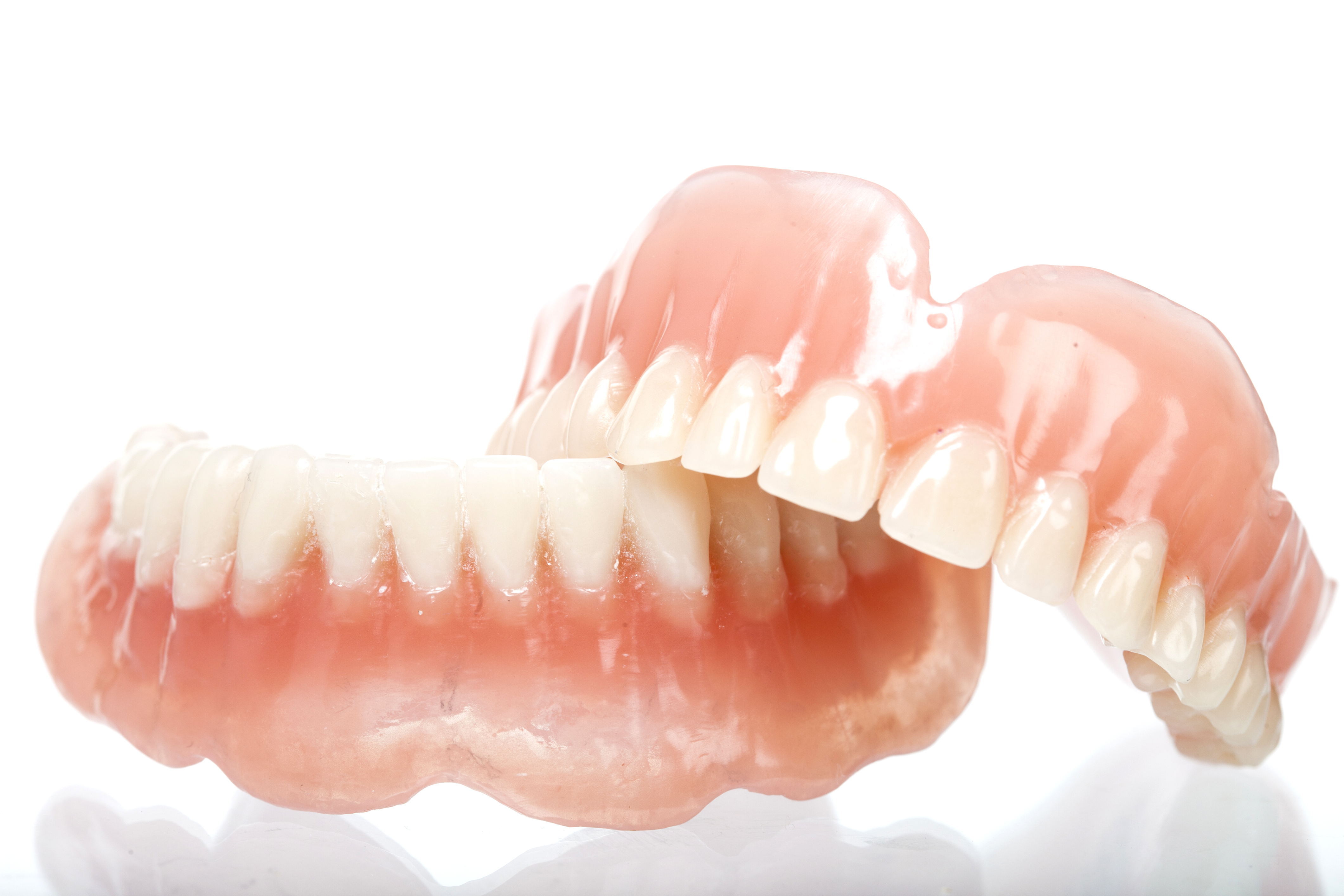
Removeable Dentures
A denture is a removable dental appliance, to replace missing teeth. They are made to closely resemble your natural teeth and may even enhance your smile.
There are two types of dentures – complete and partial dentures. Complete dentures are used when all of the teeth are missing, while partial dentures are used when some natural teeth remain. A Partial denture not only fills in the spaces created by missing teeth, it prevents other teeth from shifting.
A Complete denture may be either “conventional” or “immediate.” A conventional type is made after the teeth have been removed and the gum tissue has healed, usually taking 4 to 6 weeks.
During this time the patient will go without teeth. Immediate dentures are made in advance and immediately placed after the teeth are removed, thus preventing the patient from having to be without teeth during the healing process. Once the tissues shrink and heal, adjustments will have to be made.
Dentures are very durable appliances and will last many years, but may have to be remade, repaired, or readjusted due to normal wear.

Root Canal Treatment
Root canal therapy is needed when the nerve of a tooth is affected by decay,infection or trauma. In order to save the tooth, the pulp (the living tissue inside the tooth), nerves, bacteria, and any decay are removed and the resulting space is filled with special, medicated, dental materials, which restore the tooth to its full function.
Having a root canal done on a tooth is the treatment of choice to save a tooth that otherwise would die and have to be extracted. Many patients believe that removing a tooth that has problems is the solution, but what is not realized is that extracting (pulling) a tooth will ultimately be more costly to replace.
Root canal treatment is highly successful and usually lasts a lifetime, although on occasion, a tooth will have to be retreated due to new infections.
Signs and symptoms for possible root canal therapy :
- An abscess (or pimple) on the gums.
- Sensitivity to hot and cold.
- Severe toothache pain.
- Sometimes no symptoms are present.
- Swelling and/or tenderness.
Reasons for root canal therapy :
- Decay has reached the tooth pulp (the living tissue inside the tooth).
- Infection or abscess have developed inside the tooth or at the root tip.
- Injury or trauma to the tooth.
What does root canal therapy involve?
A root canal procedure requires one or more appointments and can be performed by a dentist or endodontist (a root canal specialist).
While the tooth is numb, the tooth is isolated using a rubber dam. An access opening is made on top of the tooth and a series of root canal files are placed into the opening, one at a time, removing the pulp, nerve tissue, and bacteria. If tooth decay is present, it will also be removed.
Once the tooth is thoroughly cleaned, it will be sealed with either a permanent filling or, if additional appointments are needed, a temporary dressing/filling will be placed.
At the next appointment, usually a week later, the roots and the inside cavity of the tooth will be filled and sealed with special dental materials. A filling will be placed to cover the opening on top of the tooth. In addition, all teeth that have root canal treatment should have a crown (cap) placed. This will protect the tooth and prevent it from breaking, and restore it to its full function.
After treatment, your tooth may still be sensitive, but this will subside as the inflammation diminishes and the tooth has healed.

Dental X-Rays
Dental x-rays are essential, diagnostic tools that provide information not visible during a dental exam. Dentists and dental hygienists use this information to safely and accurately detect hidden problems and complete an accurate treatment plan. Without x-rays, problem areas may go undetected
What the X-Ray can reveal?
- abscesses or cysts
- bone loss
- any abnormalities of the joint in TMJ problems
- decay between the teeth
- teeth developmental abnormalities
- poor tooth and root positions
- problems inside a tooth or below the gum line
Detecting and treating dental problems at an early stage may save you time, money, unnecessary discomfort, and your teeth!
How often should dental x-rays be taken?
The need for dental x-rays depends on each patient’s individual dental health needs. Your dentist will recommend necessary x-rays based upon the review of your medical and dental history, a dental exam, signs and symptoms, your age, and risk of disease.
A full mouth series of dental x-rays is recommended for new patients. A full series is usually good for a few years. Bite-wing x-rays (x-rays of top and bottom teeth biting together) are taken (check-up).
For extractions, particularly wisdom teeth an OPG (orthopantomogram) is needed to examine the entire jaw. When considering orthodontics an OPG and a lateral cephalogram are also needed.

Wisdom Tooth Removal
The wisdom teeth grow at the back of your gums and are the last teeth to come through. Most people have four wisdom teeth – one in each corner. Because of the lack of space, the wisdom teeth can sometimes emerge at an angle or get stuck and only partially emerge.
Wisdom teeth that grow through like this are known as impacted. If your dentist thinks you may need your wisdom teeth removed, they’ll usually carry out an X-ray of your mouth. This gives them a clearer view of the position of your teeth.

SCALING & POLISHING
Scaling removes plaque and tartar and polishing removes stains and remaining plaque while smoothening and shining teeth so that dental plaque cannot attach easily to tooth surfaces.
Polishing may then be followed by a fluoride gel or foam treatment to reduce post-scaling sensitivity and reduce the risk of tooth decay.
Dental scaling and polishing is recommended to prevent tooth decay and gum disease, and may be necessary every six months depending on the oral condition of a patient. As infections and diseases can spread from the mouth to the rest of the body, affecting general systemic health, it is important to maintain good oral health and hygiene.

CHILD'S FIRST DENTAL VISIT
Kids suffer from toothache, cavities and similar other dental problems because of neglect served by parents or the inclination towards unhealthy food. While prevention of dental problems is possible when parents take good care of their children, we along with our team of pediatric dentists consider it as our responsibility to treat existing problems related to teeth and gums in children.

Dental Implant
A dental implant is an artificial tooth root made of pure Titanium used in dentistry to support restorations that resemble a tooth or group of teeth.
Dental implants with the right surface treatment for successful osseoingration can be used to support a number of dental prostheses, including crowns, implant-supported bridge or dentures.
Advantages of dental implant:
- Dental implants reduce the load on the remaining oral structures/teeth by offering independent support and retention to crowns, bridgework and overdentures.
- Dental implants preserve natural tooth tissue by avoiding the need to cut down adjacent teeth for conventional bridgework.
- Dental implants will preserve bone and significantly reduce bone resorption and deterioration that results in loss of jawbone height.
- Dental implants have been shown to reduce the need for subsequent restorative intervention of adjacent teeth.
- Long-term data on implants suggest that implants last for a much longer time than conventional restorations on teeth.
- Loose fitting dentures can be replaced with improved support, stability and retention with implant overdentures.
- Overdentures will help control/improve facial contours that result in minimizing premature wrinkles.
- Implant overdentures may allow you to chew your food better and speak more clearly. Many studies have shown that overdentures contribute to improved chewing efficiency and speaking, compared to full dentures.
How long does a Dental Implant last?
Implants typically last for a patient 45 years or older, thus, dental implants can be considered for life. The crown of an implant can be upgraded to material call Zirconia, a very durable manmade ceramic that is virtually unbreakable. Found to be almost as hard as diamond. We, at Lee & Jay Dental provide these options.

Microabrasion
Enamel microabrasion is a procedure in cosmetic dentistry used to improve the appearance of the teeth. Like tooth whitening it is used to remove discolorations of the tooth surface but microabrasion is a mechanical, rather than chemical, procedure.

Crown & Bridges
Crowns are synthetic caps, usually made of a material like porcelain, placed on the top of a tooth.
Crowns are typically used to restore a tooth’s function and appearance following a restorative procedure such as a root canal. When decay in a tooth has become so advanced that large portions of the tooth must be removed, crowns are often used to restore the tooth.
Crowns are also used to attach bridges, cover implants, prevent a cracked tooth from becoming worse.Crowns also serve an aesthetic use, and are applied when a discolored or stained tooth needs to be restored to its natural appearance.
Procedure
A tooth must usually be reduced in size to accommodate a crown. An impression is then taken of the existing tooth. The impression is sent to a special lab, which manufactures a custom-designed crown. In some cases, a temporary crown is applied until the permanent crown is ready. Permanent crowns are cemented in place.
Crowns are sometimes confused with veneers, but they are quite different. Veneers are typically applied only to relatively small, mainly on the visible surface of a tooth for aesthetic reason.
Caring for your crown
With proper care, a good quality crown could last up to eight years or longer. It is very important to floss in the area of the crown to avoid excess plaque or collection of debris around the restoration.
Certain behaviors such as jaw clenching or bruxism (teeth grinding) significantly shorten the life of a crown. Moreover, eating very hard foods can compromise the adhesion of the crown, or even damage the crown.
Promotions
Promotions currently available at Gigital Dental
In conjunction with the opening of Gigital Dental Sdn Bhd, we are offering special discounts and promotions on dental treatment for all of you.

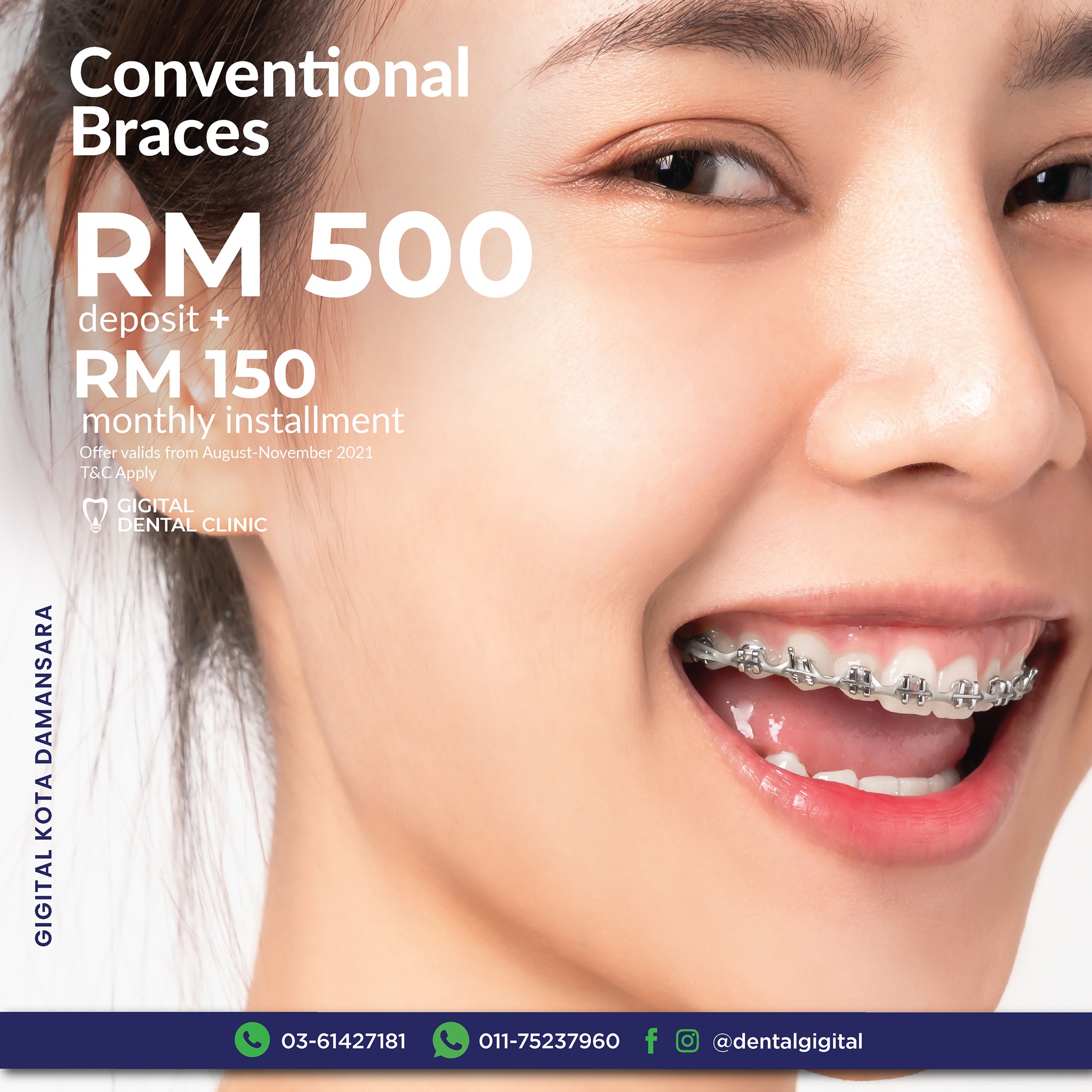
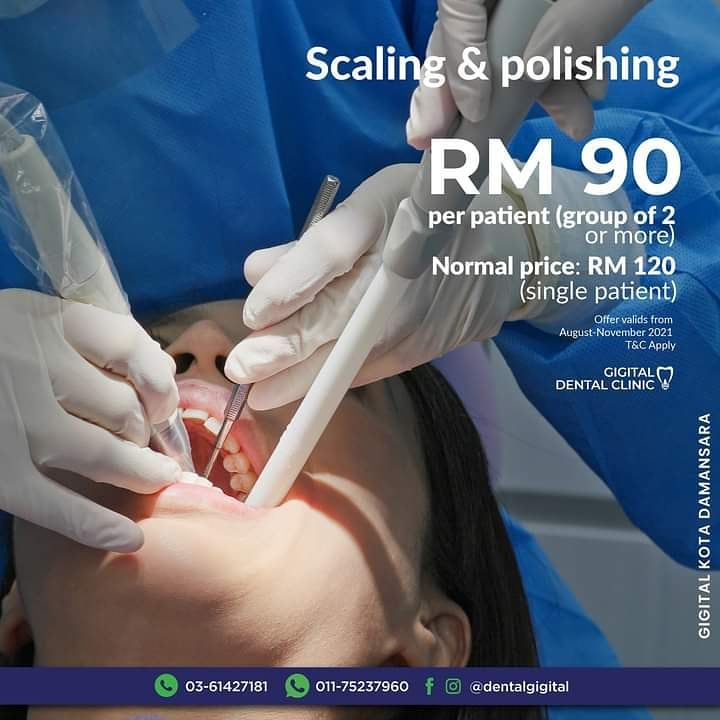
Contact
Get In Touch With Us


Follow Us Here At Our Sociel Media
Click on button above
Need Help? Call or chat with us
Office Number Gigital DentalYou can also whatsapp our staff here. Click Below
